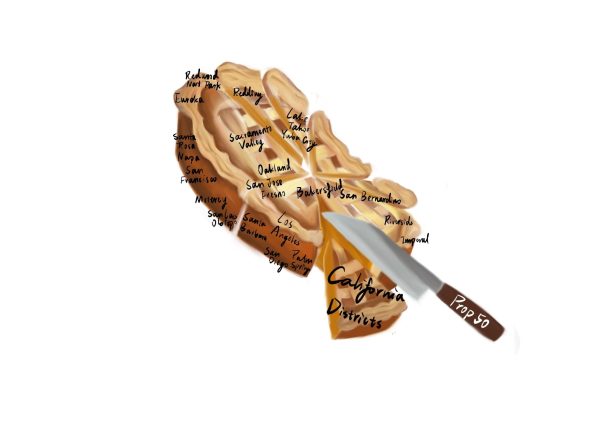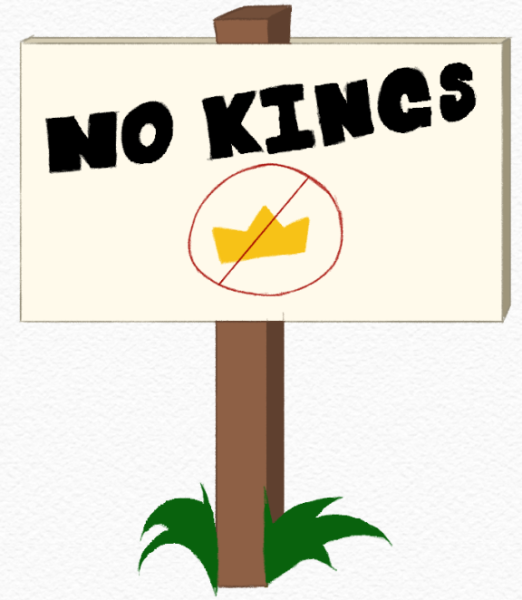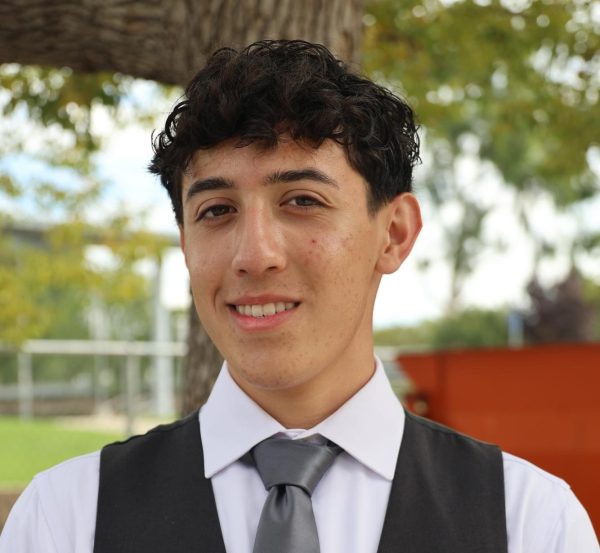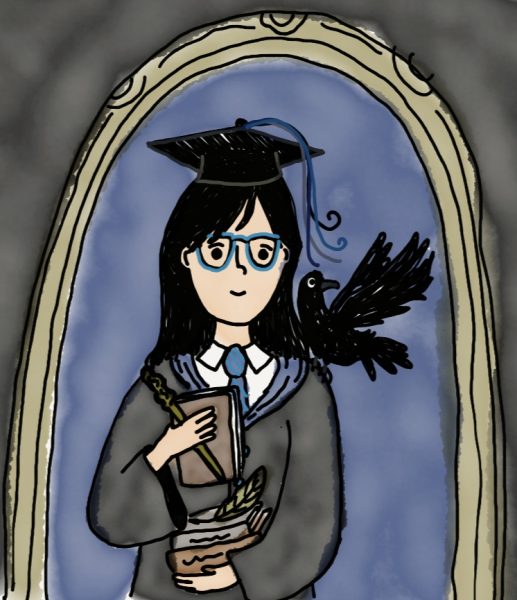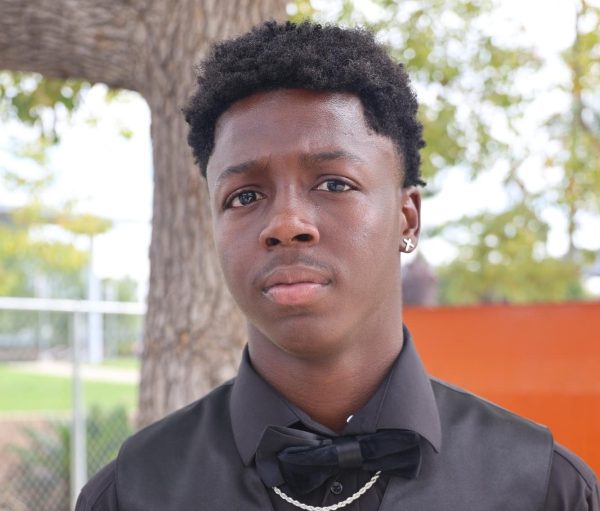How Strict is the CHS Academic Policy? Is it Really Upheld?
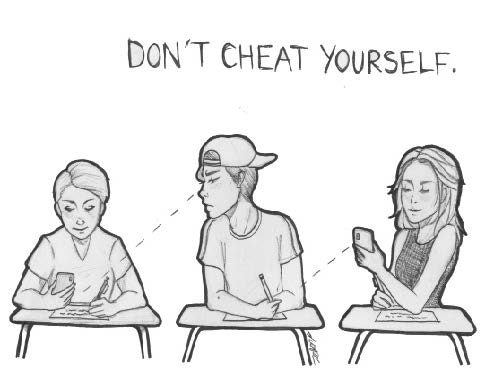
In the CHS Handbook there exist rules that if violated, should warrant some sort of punishment to the student. This includes academic honesty. However, with incidents of cheating occurring on a regular basis, the employment of these rules has been called into question. Almost all students at CHS have some knowledge of the academic honesty policies; however, it is often unclear to some what is considered academic dishonesty and what the consequences are when one is caught. While it appears that teachers and administration do their best to enforce these policies, even when students are caught, it does not always affect their chances of being admitted into colleges and academic dishonesty remains a large issue. Many students commit academic dishonesty and some have even been caught cheating; however, not all receive the punishment that they should according to the policy. If the academic honesty policy is not upheld, there is no reason for it to exist. The academic honesty policy is not upheld at CHS because there are violations in the policy that are impossible to provide sufficient evidence for, allowing students to continue cheating without the required consequences.
Category A violations consist of instances where the student commits academic dishonesty due to inexperience or lack of knowledge and expectations such as copying assignments or failing to give credit for someone’s words or ideas. Category B violations involve more serious instances of academic dishonesty such as using prohibited materials, improper communication with other students during tests, and submitting someone else’s work as your own. Consequences of Category B violations are more severe but both categories include an academic consequence, the student’s parent/guardian being contacted, a referral being submitted to the administrator and documented in “Q,” and students receiving either detention, Saturday school, or in-school suspension.
Every teacher has a different way of handling incidences of academic dishonesty. Depending on how severe the case is, most teachers will give a zero on an assignment or take some amount of credit away. Teachers try to submit referrals to the administration when they catch a student committing a Category A or Category B violation, but students continue to slip through the cracks due to lack of evidence.
Plagiarism is obvious and easy to prove. However, cheating is much more complicated. A teacher can see that a student is cheating or that a student is looking at another student’s test; however, many times a teacher’s word is not enough.
“It’s important to remember that there is a difference between being suspected of cheating and actually cheating. You need hard evidence. Circumstantial evidence is not enough,” AP Economics and World History teacher Ryan Easton said.
Even when there are two tests that are identical and the students who took them sit right next to each other, the administration deems that this is not enough to prove academic dishonesty. While it may be unlikely, as long as there is the possibility that it was a coincidence, it cannot be proved. When a teacher sees a student looking at someone else’s test or glancing at their phone, often times this is not enough. There exists the main problem with the academic honesty policy and how it is upheld. Students get caught cheating by teachers but when teachers go to report it to administration, there is not sufficient evidence. Even though the academic honesty policy includes examples of cheating that are difficult to provide hard evidence for, these instances of cheating sometimes go unpunished. This is unfair to students who invest time and effort into studying for exams.
“I would say that cheating happens in every classroom here at CHS. This is not why I came to teach. Amongst all the problems CHS has, cheating is one of the most ubiquitous. It saddens me deeply to know that the cheaters of today will go on to lead this country in the future. I’m not trying to catch cheaters to get revenge. I try to protect my good students who work hard and that should be rewarded,” AP Biology and Freshman Biology teacher Eric Tucker said.
Violations of the policy are recorded on students’ cumulative files that also include all the official information on each student. However, details to offenses are not listed. Only punishments ranging from detentions to suspensions are recorded. Details to offenses are recorded separately just in case a college asks for any problems regarding academic honesty. Some colleges ask for students to write down any incidents of academic dishonesty in their applications, which may affect college admission and the future of students’ education greatly. Regardless, the school takes appropriate measures to investigating and reporting these offenses only if there is sufficient evidence to back the accusation. Incidents will not be investigated and recorded unless the administration believes that adequate proof of the violation is provided. This has led to negligence of incidents in the past, which resulted in certain instances of plagiarism not being recorded and sent to colleges. This may have unfairly affected college application evaluations and may influence students’ futures. Of course, there are some cases in which students have had their college admission rescinded.
Academic integrity has become a large issue in high school in the past several years with the readily accessible information on the internet and advancement in technology. Some teachers believe that the policy is not being upheld as strictly as they hope for it be even though both teachers and administrators are trying hard to positively affect the school by contributing to the prevention of cheating and plagiarism at CHS. We claim to “value and actively encourage academic honesty highly” (CHS Parent and Student Handbook), yet we continually allow students who have been caught to escape consequences. These consequences are set in place so that students might learn from their mistakes and move on and uphold academic integrity. It should not be possible for students to cheat a system that is designed to combat cheating. Academic dishonesty is a sign of blatant disrespect to teachers, administration, classmates, and the educational values that CHS is expected to uphold. Students should remember that they attend school to learn, grow as individuals, develop new skills, and showcase these skills honestly and to the best of their own ability. By committing plagiarism and being academically dishonest, students undermine the very purpose of education.
Hello there! Our goal is to provide relavent, engaging journalism for readers of all ages. Your donation will support the student journalists of the Wolfpacket at Claremont High School, and will allow us to purchase equipment, print our monthly issues, and enter in journalism competitions. We appreciate your consideration!
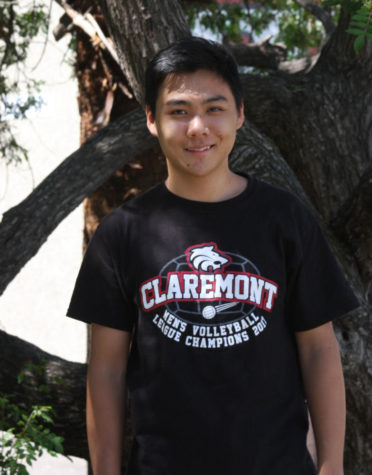
Shane Jung is a Senior at CHS and is one of the Assistant Editor in Chiefs for the Wolfpacket. He has found a love for writing through his time as a...



